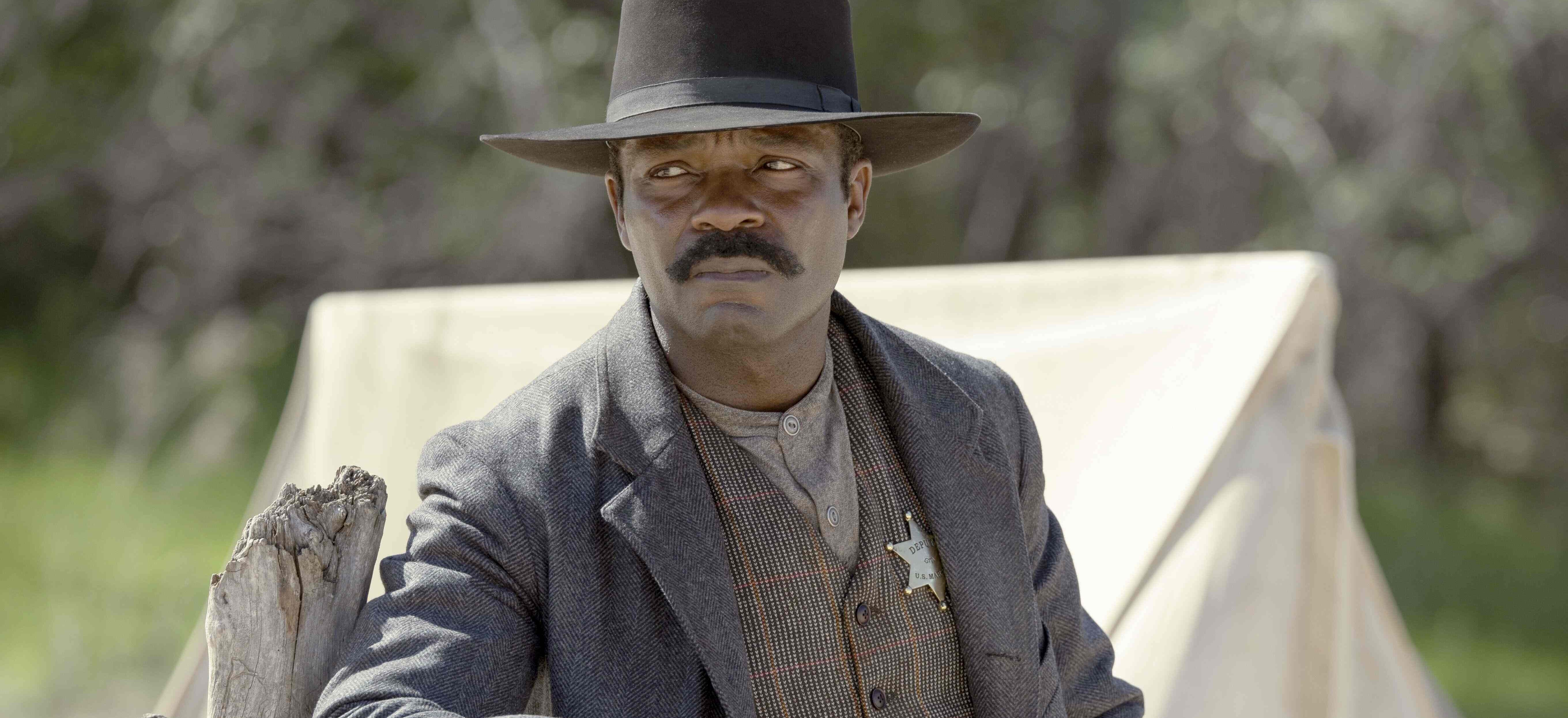Created by Chad Feehan, ‘Lawmen: Bass Reeves’ is a western drama show on Paramount+ depicting the ups and downs in the life of a great lawman. The miniseries follows Bass Reeves in the 1800s, who becomes a deputy marshal, one of the first Black people in the U.S. to take on the responsibility west of the Mississippi. He’s a man of few words and prefers to let his work speak for him. A lot of outlaws need to be dealt with, and Reeves seems to be pretty good with his gun.
David Oyelowo plays the titular character in the series, with Donald Sutherland, Dennis Quaid and Joaquina Kalukango in supporting roles. Aside from giving another glimpse into the Old Wild West, the series deals with the issues of lawlessness with a Black man at the center treating all outlaws equally at a time when racism was an issue. There’s a lot more under the surface to the story of Reeves, and it makes us curious about how true the events portrayed in the series are.
Bass Reeves: The Real Story Behind the Skilled Marksman
‘Lawmen: Bass Reeves’ is inspired by the real life of lawman Reeves, with the events in the show believed to be based on author Sidney Thompson’s ‘The Bass Reeves Trilogy.’ While it’s a historical fiction novel, it is based on the real deputy marshal, parts of whose life in the 19th century have been documented. However, Oyelowo thought of doing a project on Reeves way back in 2015, when these novels had not even been released yet. It took many years and an eventual collaboration with producer Taylor Sheridan, who co-created ‘Yellowstone,’ to bring this project off the ground.

Interestingly, the Paramount+ series was originally thought of as a prequel to ‘Yellowstone’ and was initially called ‘1883: The Bass Reeves Story.’ But later, even if the time period is the same, the series was renamed, and any association with the ‘Yellowstone’ universe was dismissed. Bass Reeves is a well-known figure in Western history not just because he was one of the first Black deputy marshals in the area but also for the way he justified the term lawman in his tenure. Born in 1838, Reeves lived at the time slavery was still legal, as it was only abolished much later in the United States in 1865 through the Thirteenth Amendment.
During his childhood in Crawford County, he and his family were enslaved by the Arkansas state legislator William Steele Reeves. During the American Civil War, Bass tagged along as the slave of the state legislator’s son, George Reeves, who joined the Confederate Army. All accounts of his life state that Bass earned his freedom around this time, but there’s no certainty about the manner in which he did. Some claim that he got his freedom after a card game with George, but while the details are foggy, it’s clear that Bass freed himself years before slavery was officially abolished in 1965.

He then escaped to Oklahoma, where interaction with the Native American tribes of the Indian Territory helped him get familiar with the place, and he learned more about the Native languages and cultures of the Cherokee, Creek and Seminole groups and went on to become especially fluent in the Muscogee language. Having gained a familiarity with the locals and his new-found freedom, it is believed Bass also utilized this time to understand pistols and learn how to use them with both hands. After the war ended in 1865, along with slavery, Bass is believed to have moved to Arkansas to settle with his family. He was initially married to Nellie Jennie, and a few years after her death got married to Winnie Sumter. With both of them, he had eleven children in total.
But his real professional career started in 1875 when lawlessness was prevailing in the Indian Territory, and Bass was chosen as one of the first Black deputy marshals to deal with the situation. Apart from the fact that he was familiar with the language and the area, as he shortly also served as a guide in the locality, and that he could shoot a gun well, his honesty, demeanor and dedication as an officer of law made him perfect for the position. In his career of 32 years as a lawman, he became so good at catching fugitives, thieves and every kind of outlaw, that he allegedly made over 3,000 arrests and killed 14 outlaws on duty. He was so committed to the law that he even arrested his own son, Benjamin, for the murder of his wife when the time came. It’s unclear if Benjamin agreed to go on his own or was captured by Bass, but Bass was allegedly so committed to the law that he knew even his son had to be tried before the court.
Bass was also a good detective, and some wild stories circulating about him even suggest that he, at times, went in disguise to scout and collect evidence about the criminals before he arrested them. Despite dealing regularly with so many outlaws, he was an excellent marksman and never sustained a serious injury on duty. He retired two years after becoming an officer at the Muskogee Police Department due to health reasons and died in January 1910 after suffering from Bright’s disease.
Read More: Was Bass Reeves Really a Slave? How Was He Freed?


You must be logged in to post a comment.